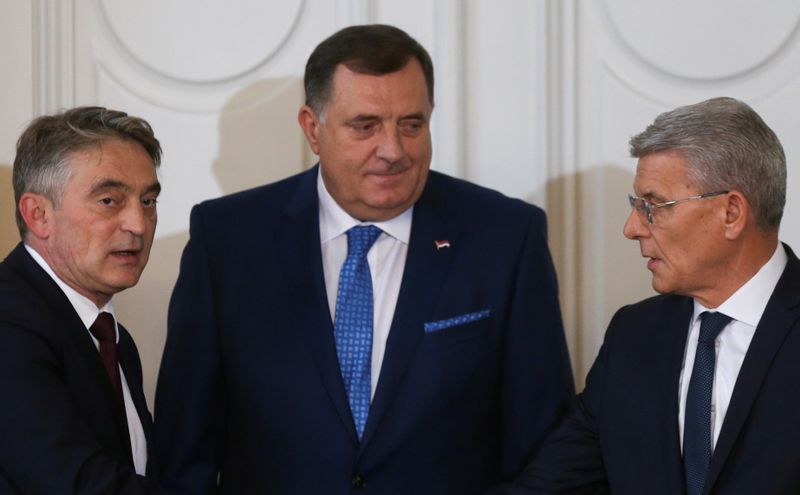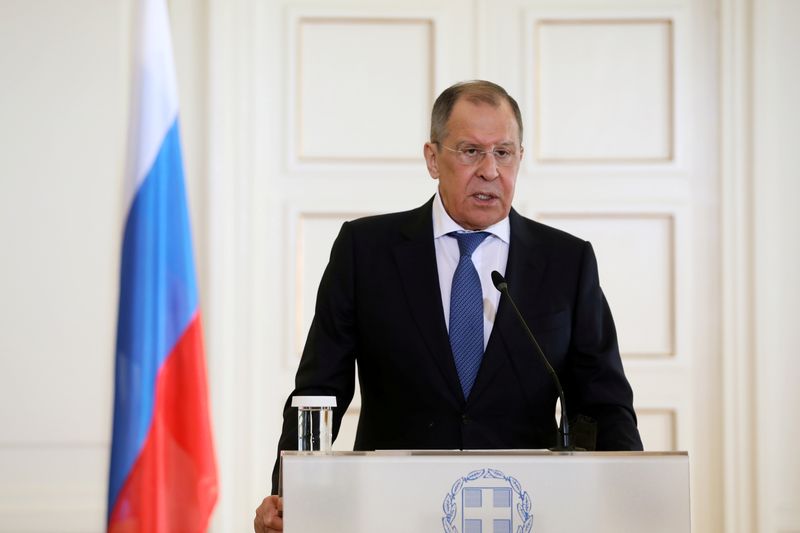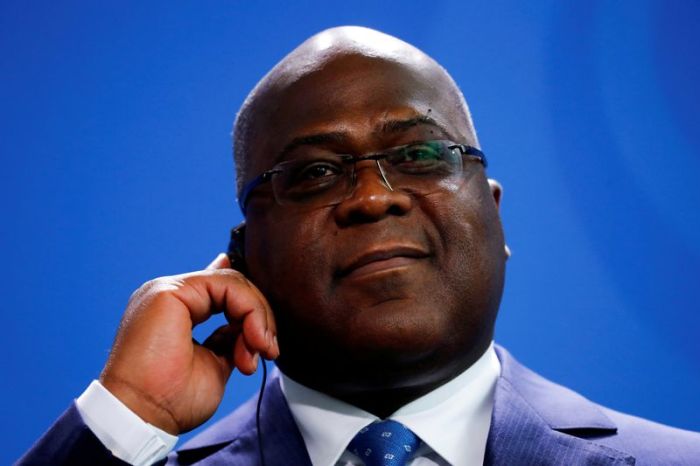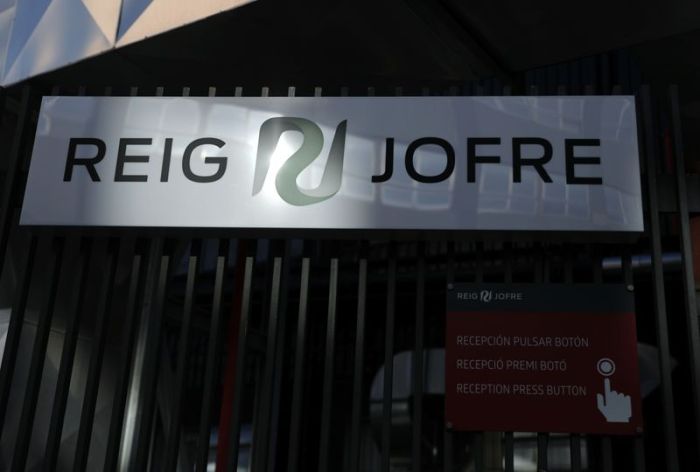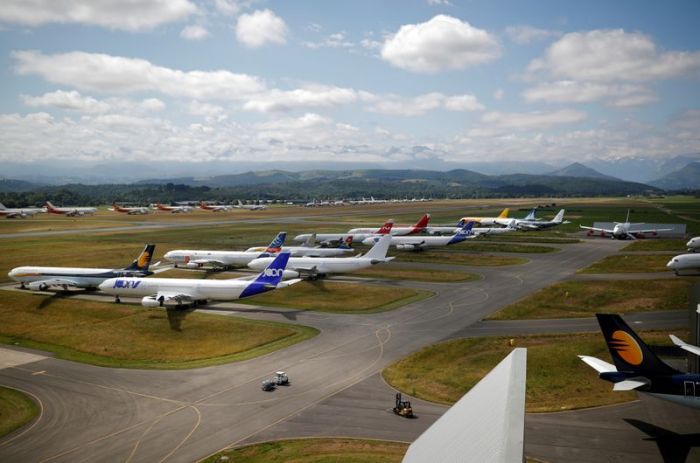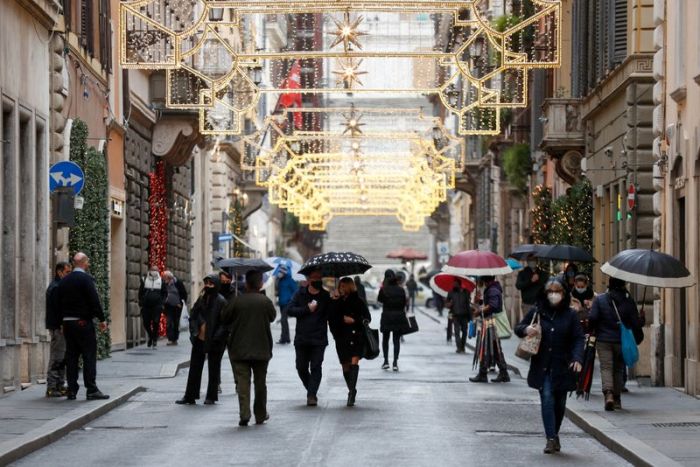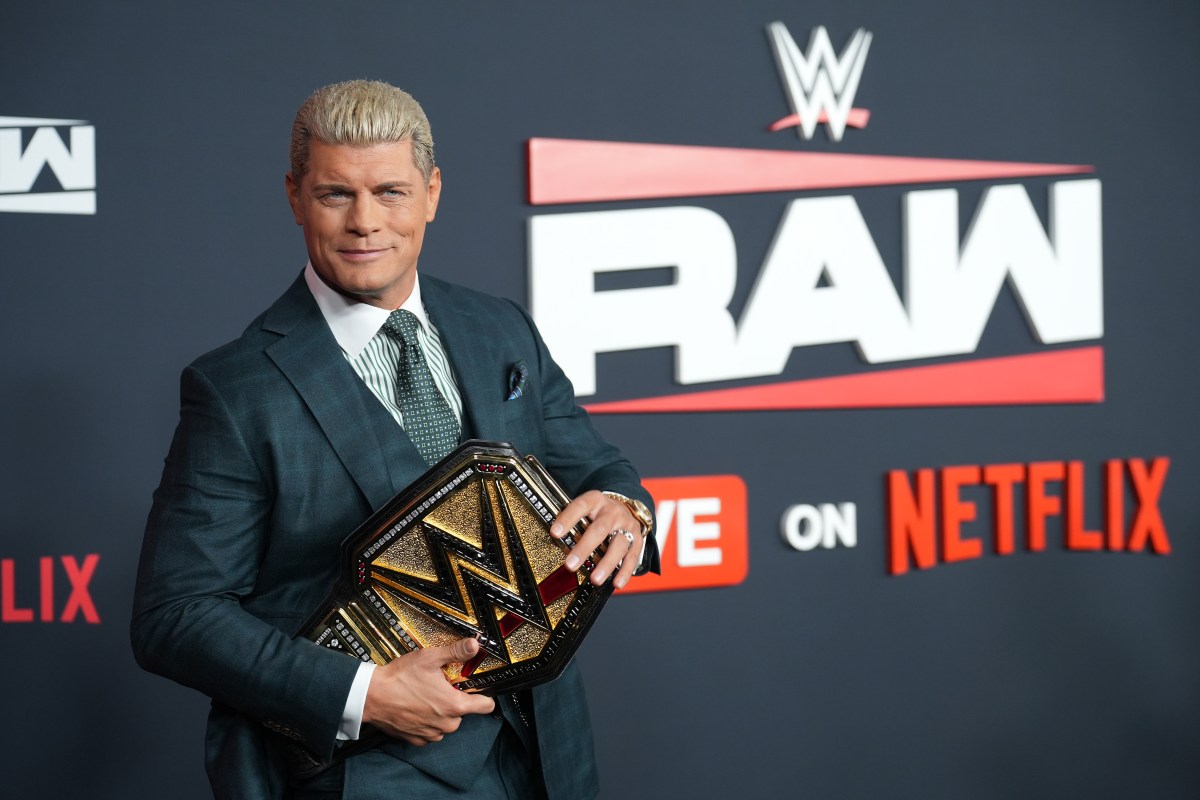SARAJEVO (Reuters) -The Croat and Muslim Bosniak members of Bosnia’s inter-ethnic three-man presidency declined on Tuesday to meet visiting Russian Foreign Minister Sergei Lavrov, saying he had shown disrespect towards their state.
Lavrov, whose nation is a champion of Serbian interests in Bosnia and the wider Balkans, met the Serb member of the presidency Milorad Dodik on Monday and again on Tuesday.
Croat presidency member Zeljko Komsic said the first meeting, in the government office of Bosnia’s autonomous Serb region just outside the country’s capital Sarajevo, was insulting as no national flag was on display despite the Russian being on an official visit.
“Mr Lavrov, as one of the worlds’ three top diplomats…is sending us a message … which we interpret as disrespectful and a denial of the state he is visiting,” Komsic told reporters.
He and Bosniak Muslim presidency member Sefik Dzaferovic did not attend a planned meeting with Lavrov at the presidency building in Sarajevo, where the Russian met Dodik again.
“The incident…is, I believe, irrelevant to Russia’s position, to the development of relations with the people of Bosnia…,” Lavrov said after meeting President Aleksandar Vucic of Serbia in its capital Belgrade.
“The politicians who made this decision are not independent,” Lavrov said. “I think (they are) clearly acting on someone’s prompting and most likely expressing the interests…of external forces.”
Komsic said that Lavrov, who on Monday endorsed the Serb Republic parliament’s resolution on military neutrality, knew that a regional legislature cannot decide such strategic policy.
“We are aware that we are small and weak, but we are not ready to be a hostage in any kind of games by Russia when it comes to their relations with the European Union and NATO members,” Komsic said.
Earlier on Tuesday after meeting his Bosnian counterpart Bisera Turkovic, Lavrov said: “Russia confirms its principled and strong support for Bosnia’s sovereignty and territorial integrity, and equality of all of its constituent peoples”.
The Russian echoed a long-time request by Bosnian Serbs to shut an international peace overseer’s office, set up as part of the U.S.-brokered Dayton pact to end Bosnia’s war 25 years ago.
Under the deal, Bosnia was split into two autonomous regions, the Serb-dominated Serb Republic and the Federation shared by Bosniaks and Croats, which are linked via a weak central government.
(Reporting by Daria Sito-Sucic with additional reporting by Paulina DevittEditing by Andrew Cawthorne and Mark Heinrich)

